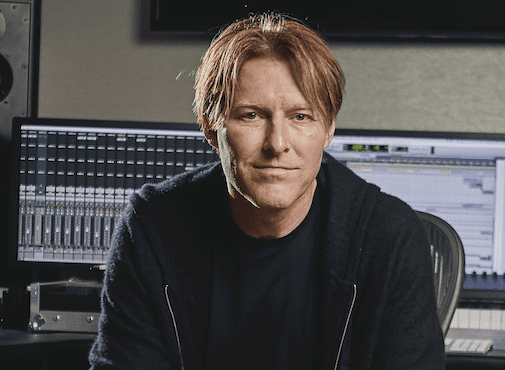Duncan Bell is T3’s Operations Editor, he’s made a career out of correcting other people’s mistakes and telling them what to do. On a day-to-day basis he’s responsible for maintaining the quality of the T3 publication and brand which is no easy task. We catch up with Duncan for our next industry spotlight to talk about his journey into the journalism industry and how his role has changed through the years. While we’re at it, we also get his thoughts on the magazine industry and grill him for some handy hints and tips.

“People are in the industry for self aggrandisement and money”
S] How did you get started in the industry?
DB] When I started, I was working as a salesman, selling press cuttings and services so it was completely unrelated to the journalism industry. The only link I had luckily was a friend from university. He was working at a magazine at the time of the first dot com boom. A lot of people at that time were setting up news and music-based websites. As a result, many of the staff that were working on this magazine left to set up their own website and build from there. For the remaining staff there was this panic, and my friend approached me because I could ‘do grammar’. The content of this magazine was based around music and I was interested, so I wasn’t coming in to the industry completely ignorant.
Basically, I came in as a sub editor which is someone who reads copy that other people have written in order to make sure that it is spelt properly and that was how I got into the industry. I think that’s an unusual way to get in but that’s how it happened for me.
S] So, you were pretty much thrown in at the deep-end from day one?
DB] Yes, but I didn’t really have any interest in magazines. I hadn’t spent ages talking to friends from university saying, ‘I really want to work in magazines, so if there’s a job going let me know’. I’m not sure if that counted in my favour because my friend obviously thought I was very level-headed. You can often get so enthusiastic about something that you actually end up not be that useful because you are running around like a headless chicken.
S] Obviously you have dealt with a number of interns and people on placement over your years working in magazines, so what advice would you give someone looking to start out in the industry?
DB] Doing work experience is incredibly helpful. In some industries you can do work placements until you are blue in the face and nothing will ever come of it, but in magazines that is how you get involved. Particularly these days because there just isn’t as much money and people are always looking for a cheap way of hiring new staff and someone who comes in on work experience isn’t initially being paid anything but there is potential for them to be hired from that. Even if they are not hired it is a great way of building up contacts. What people look for is firstly enthusiasm and secondly, knowledge on the subject matter of the magazine – those are incredibly important.
A lot of people that come in, don’t connect at all with people in the office because they might be nervous or they just don’t like us! I am not sure. You can be the best writer in the universe but if you don’t make any connection with members of staff then it’s not going to work, whereas you can be quite a mediocre writer and if you show willing to do jobs that might not seem great, and you’re enthusiastic about it, then that goes a long way. For example, if you make the tea, then someone may offer you something small to do which will end up being published. If you don’t make the tea then nobody will talk to you.
My other tip would be to go for an online set-up rather than a magazine for a placement – or something like T3 where there is both. Online, you have second-by-second coverage and so there is always stuff that needs to be written. In contrast, with a magazine there are not always many opportunities to write anything, but you might be allowed to do picture research. The last thing I would say would be to come into it from the production side of things rather than on the written side, as a sub editor for example. Ironically, most writers don’t understand grammar or punctuation and cannot spell. People who paid attention in school to spelling and know how to use apostrophes are actually quite thin on the ground. You can come in as a sub and then move into writing. Besides it’s always good to add more than one string to your bow.
S] What would you say your biggest challenge is within your role now as Operations Editor at T3 magazine.
DB] Luckily at T3, it’s very laid back. I have been there a long time and people are very professional and nice. The biggest challenge as an operations editor is that you are basically telling people what to do, so you have to be comfortable with that and getting everything in on time. You have to tell people when things are not good enough. It’s about quality control, so you have to be a bit of a bas**rd! [laughs]. Other people might find that difficult but I really enjoy that type of challenge, it can be good, so long as you are not getting into stand-up fist fights in the office every day! A bit of conflict can be a good thing.
S] How do you feel you have evolved both personally and professionally through your job?
DB] [Laughs] Well, I’ve gotten drunk more frequently – I don’t know if that counts as personal evolution. Any magazine has to have a special focus and to get the most out of it as a writer you have to learn about as much of the subject matter as possible. I don’t know if it has improved me as a person or at all, but I do know loads more about technology and how the consumer industry works in this country and worldwide. The interesting thing with that is, I have started to get television offers, which is something I never came into the industry to do, because news channels always want people who are experts in their field – technology is particularly wide and there are a lot of channels out there that need to fill a lot of airtime. Before you know it you’re on the television talking about the fortunes of Blackberry. The only way that comes about is because people perceive you as being an expert. I suppose the thing to bear in mind is that people might not know that much about specific areas of a topic, so if you work for a magazine that specialises in something, then you might end up being an expert!
S] Would you say that it’s important for writers to move down south and get experience?
DB] Of course a lot of people want to move to London, but I think that it is important for people to try and set things up in their own areas, both geographically and in terms of their interests. The problem is, how do you make money out of that? You can get experience that way, but you are learning as you go along rather than with people who are experienced and in London. I don’t think you have to move, but clearly it helps.
S] What are some of the most exciting things you are looking forward to achieving this year with T3?
DB] I am looking to do more TV stuff, that’s my bag. We’ve just got a new editor [Luke Peters] after not having one for about six months. It’s been okay but we’ve been understaffed. So, we he has a lot of new ideas and so do the publishers, about where they want to take it. I am looking forward to mixing it up and trying to keep it fresh which isn’t always easy because when you have been working on a magazine for a long time one month can seem like any other. So, you have to work to keep it new for yourself as much as anyone else. Onwards and upwards.
S] What would you be doing if you were not working at T3?
DB] That’s a tough one. Probably working at a cheese shop in a rural village or something. Something that’s completely different to working on a technology magazine in the middle of London. I’ve been doing this for so long that I can’t think of doing anything else, but when I do I always think about running a cheese shop! Everybody is opening bloody cheese shops these days though! I need a new niche.
S] What’s been a defining moment for you in your career?
DB] I don’t know really, when I used to work in the music press and a quote of mine from a review would end up on the front of an album or a poster, then that was always very gratifying. This year I have been nominated for Columnist of the Year which I will find out about later this month at the PPA awards. I’ve actually never been nominated for anything relating to subbing or production, so that will be really nice.
S] How has your attitude to the music industry changed over your career?
DB] It’s not really changed that much, I’ve got a fairly cynical outlook on things. The media industry and journalism in general has always been a very cynical business. I try and do work that I think is good. A lot of what gets published these days isn’t particularly great and people are in the industry for self aggrandisement and to make money – I am in it for that reason as well but trying to keep a certain level of integrity can be a struggle.
The industry has always been about keeping advertisers happy and keeping the people who you need access to happy as well without having to compromise your integrity. A lot of people who work in publishing are more than happy to do that all the time. It’s always been a cut-throat business and it still is, the only way it has changed over the years is that there is a little bit less money in it. Nowadays people just think that publishing is on a massive decline but I don’t know that it’s that massive. Magazine’s still sell really well funnily enough, and newspapers are on their way out. The online thing has come in to replace it. People are always going to want information and quality writing and journalism one hopes. It’s just how they get it that might change.
There is an argument that the quality of journalism may decrease with the rise of online magazines and publications, though?
DB] I think that is true up to a point. Yes, at the moment online magazines are seen as less credible but then what does credibility actually mean? A lot of online publications are actually good because they are not trying to be massively credible or whatever that may mean. Credible can often mean saying things that people in the industry want you to say and the great thing about online publications is that they are like fanzines with a small number of like-minded people working against that. My biggest worry is that this kind of thing will die out eventually with a number of big publishers moving into the online market. It’s an exciting time though.
S] What gadgets can you not live without?
DB] That’s tricky because of the way that gadgets are all interlinked. There are two though – my iMac because that’s my hub and then my iPod Touch because I still think it’s the most perfectly realised gadget that’s ever been made because the iPhone, although it’s nice and it does so much more it is prone to crashing and the battery life isn’t spectacular. It’s also uglier than the iPod Touch. Music is my main passion in life and the iPod Touch does various other things but it is mainly a music player. The mix of storage, functionality and the sheer aesthetic quality makes it the perfect gadget.
S] If you could pick a tune to soundtrack your typical day, then what would you pick?
DB] Something that’s upbeat with many moods and is quite chaotic. I would say something like ‘Teenage Riot‘ by Sonic Youth.
S] Does that song have a particular significance to you?
DB] Yeah. The problem is that I have about a billion CDs and people occasionally ask me what my favourite song of all time is and I have said that in the past. It’s a song that I grew up with and when you are a teenager any song that you listen to with the word ‘teenage’ in it resonates. It still sounds amazing now even though Sonic Youth are all pensioners and I am middle-aged. It’s a five-minute song and it’s the perfect mix between punk’s energy and avant-garde intelligence.
For more information on T3 magazine visit the official website.






